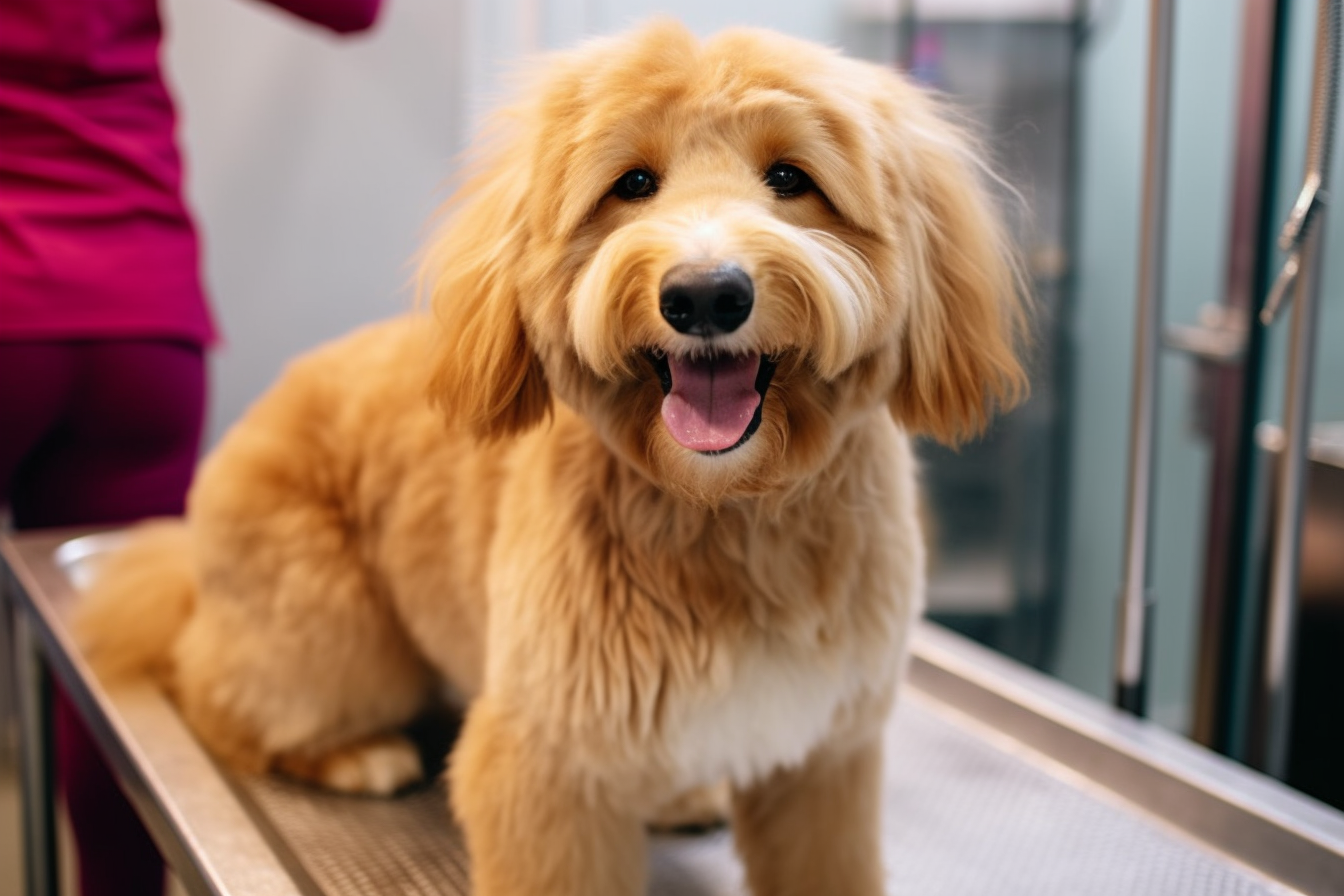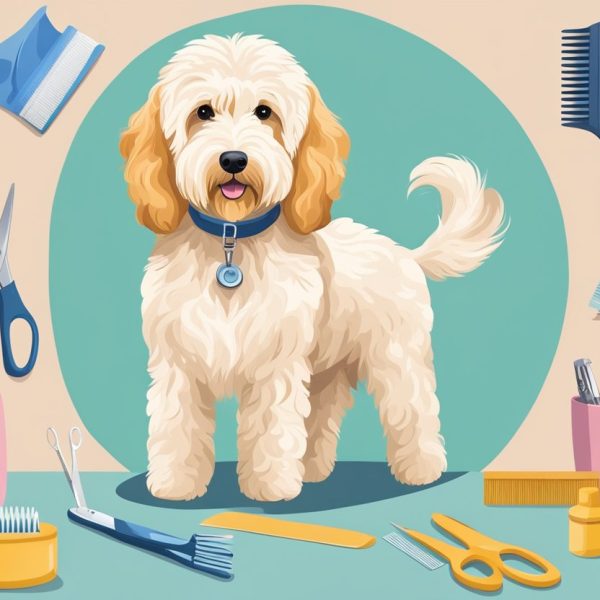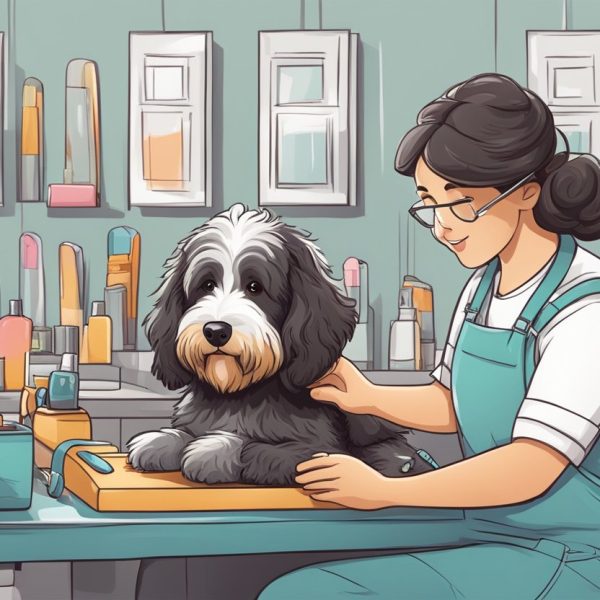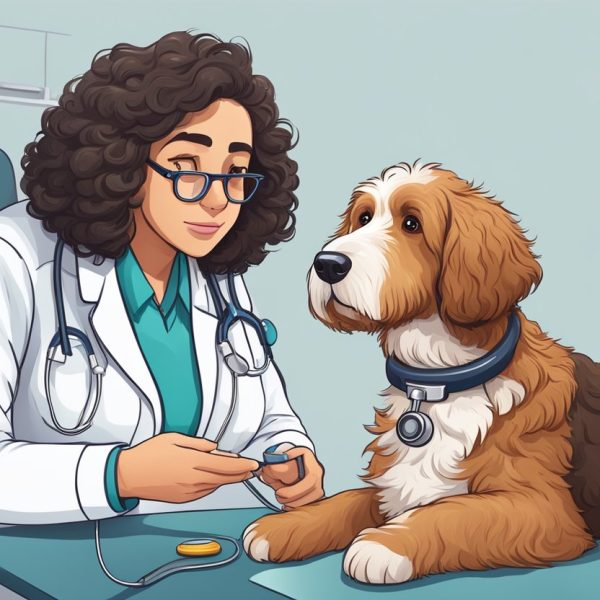Regular health check-ups are essential for maintaining your poodle’s overall health and well-being. As a responsible pet owner, it is important to ensure that your furry friend receives the necessary care and attention from their trusted veterinarian. By understanding the best practices for regular check-ups, you can provide your beloved poodle with the best possible healthcare and keep them happy and healthy for years to come.

The frequency of check-ups depends on several factors, including your poodle’s age, breed, and overall health status. Generally, it is recommended that adult poodles receive a check-up at least once a year, while senior poodles (over 7 years old) may require more frequent visits. Puppies, on the other hand, may need to visit the vet more frequently to ensure that they are growing and developing properly. Your veterinarian can provide specific recommendations based on your poodle’s individual needs.
During a check-up, your veterinarian will perform a comprehensive physical examination to assess your poodle’s overall health. This may include checking your poodle’s eyes, ears, mouth, teeth, skin, coat, and body condition. Your veterinarian may also recommend additional tests or procedures, such as bloodwork, urinalysis, or imaging, to screen for potential health issues or monitor existing conditions. By following these best practices for regular health check-ups, you can help ensure that your poodle stays healthy and happy for years to come.
Understanding Poodles’ Health Needs
Regular health check-ups are crucial to maintaining your poodle’s overall well-being. Poodles are generally healthy dogs, but like all dogs, they can develop certain health issues. It is important to be aware of these issues and to take preventive measures to keep your poodle healthy.
One of the most common health issues in poodles is hip dysplasia. This is a genetic condition that affects the hip joint. It can cause pain and stiffness in the hips and can lead to arthritis. Regular check-ups with your veterinarian can help detect hip dysplasia early, and preventive measures such as a healthy diet and regular exercise can help minimize the risk of developing this condition.
Another common health issue in poodles is eye problems. Poodles can develop conditions such as cataracts, progressive retinal atrophy, and glaucoma. Regular eye exams by a veterinarian can help detect these conditions early, and prompt treatment can help prevent them from progressing.
Poodles are also prone to skin allergies and ear infections. Regular grooming and cleaning of your poodle’s ears can help prevent ear infections. A healthy diet can also help prevent skin allergies.
Regular check-ups with your veterinarian can help identify any health issues early on, potentially reducing treatment costs. Preventive measures such as a good diet, regular exercise, and proper grooming can help avoid some health issues altogether. A commitment to your poodle’s health is a commitment to their happiness and a long, quality life with you.
Importance of Regular Health Check-Ups
Regular health check-ups are an essential part of keeping your poodle healthy and happy. Just like humans, poodles need regular check-ups to ensure that any potential health issues are caught early and treated before they become serious problems.
During a regular check-up, your veterinarian will perform a thorough physical examination of your poodle. This will include checking your poodle’s eyes, ears, nose, teeth, and gums, as well as listening to their heart and lungs. Your veterinarian may also take a blood sample to check for any underlying health issues.
In addition to the physical examination, regular check-ups also provide an opportunity for you to discuss any concerns you may have about your poodle’s health. Your veterinarian can provide advice on diet, exercise, and other aspects of your poodle’s care to ensure that they are living their best life.
It is recommended that poodles receive a check-up at least once a year, but more frequent check-ups may be necessary depending on your poodle’s age and health status. By staying up-to-date on your poodle’s health, you can help ensure that they live a long and healthy life.
The Role of a Veterinarian
Regular health check-ups are essential to ensure your poodle’s health and well-being. A veterinarian plays a crucial role in providing preventative care and early detection of any health issues that your poodle may have.
During a regular health check-up, the veterinarian will perform a physical examination of your poodle. This examination may include checking your poodle’s eyes, ears, nose, mouth, skin, and coat for any abnormalities. The veterinarian may also take your poodle’s temperature and check their heart rate and breathing.
In addition to the physical examination, the veterinarian may recommend certain tests or procedures to detect any underlying health issues. These tests may include blood work, urinalysis, and fecal analysis. These tests can help detect any early warning signs of health issues such as diabetes, kidney disease, and liver disease.
The veterinarian can also provide advice on preventative care measures such as vaccinations, parasite control, and dental care. They can also provide guidance on nutrition and exercise to ensure your poodle maintains a healthy weight and lifestyle.
Overall, the veterinarian plays a crucial role in ensuring your poodle’s health and well-being. Regular health check-ups with a veterinarian can help detect any health issues early on, allowing for prompt treatment and a better prognosis.
Best Practices in Regular Health Check-Ups
Regular health check-ups are essential for maintaining your poodle’s overall health and well-being. By scheduling routine appointments with your veterinarian, you can ensure that your poodle is receiving the necessary preventive care and treatment to live a long and healthy life. Here are some best practices to follow when it comes to regular health check-ups for your poodle.
Scheduling Regular Appointments
It is recommended that your poodle receives a comprehensive physical examination at least once a year. However, depending on your poodle’s age, health, and medical history, your veterinarian may recommend more frequent visits. Be sure to schedule appointments in advance and mark them on your calendar to ensure that you don’t miss any important check-ups.
Comprehensive Physical Examinations
During a comprehensive physical examination, your veterinarian will assess your poodle’s overall health by examining their eyes, ears, nose, mouth, teeth, skin, coat, heart, lungs, abdomen, and musculoskeletal system. They may also recommend diagnostic tests, such as blood work or urinalysis, to check for underlying health conditions.
Vaccinations and Preventive Medications
Vaccinations and preventive medications are an essential part of your poodle’s regular health check-ups. Your veterinarian will recommend a vaccination schedule based on your poodle’s age, lifestyle, and medical history. Additionally, preventive medications, such as flea and tick prevention, heartworm prevention, and deworming, may be prescribed to protect your poodle from parasites and diseases.
Dental Check-Ups
Dental health is an important aspect of your poodle’s overall health. During a dental check-up, your veterinarian will examine your poodle’s teeth and gums for signs of dental disease, such as tartar buildup, gingivitis, or periodontal disease. They may recommend professional dental cleaning or at-home dental care to maintain your poodle’s dental health.
Eye and Ear Examinations
Regular eye and ear examinations are important for detecting and treating eye and ear diseases. During an eye examination, your veterinarian will check your poodle’s vision, eye pressure, and eye health. During an ear examination, they will examine your poodle’s ear canals and eardrums for signs of infection or inflammation.
Heart and Lung Assessments
Heart and lung assessments are important for detecting and treating heart and lung diseases. During a heart assessment, your veterinarian will listen to your poodle’s heart for abnormal rhythms or murmurs. During a lung assessment, they will listen to your poodle’s lungs for abnormal sounds or signs of respiratory disease.
Skin and Coat Evaluations
Skin and coat evaluations are important for detecting and treating skin and coat diseases. During a skin evaluation, your veterinarian will examine your poodle’s skin for signs of infection, inflammation, or parasites. During a coat evaluation, they will examine your poodle’s coat for signs of dryness, matting, or shedding.
Nutrition and Weight Management
Nutrition and weight management are important aspects of your poodle’s overall health. During a regular health check-up, your veterinarian will assess your poodle’s body condition score and recommend a diet and exercise plan to maintain a healthy weight. They may also recommend nutritional supplements or dietary changes to address specific health concerns.
By following these best practices in regular health check-ups, you can ensure that your poodle receives the necessary preventive care and treatment to live a long and healthy life.
Here’s your section on special considerations for poodle health check-ups:
Special Considerations for Poodle Health Check-Ups
When it comes to poodle health check-ups, there are a few special considerations to keep in mind. These considerations include age considerations and breed-specific health issues.
Age Considerations
As your poodle ages, their health needs will change. It’s important to schedule regular check-ups to ensure that any age-related health issues are caught early. This is especially important for senior poodles, who may be more susceptible to certain health conditions such as arthritis, diabetes, and cancer.
During your poodle’s health check-up, your veterinarian may recommend specific tests or procedures based on their age. For example, senior poodles may need blood tests to check for kidney and liver function, as well as a dental exam to check for dental disease.
Breed-Specific Health Issues
Poodles are prone to certain breed-specific health issues that should be monitored during regular check-ups. These health issues include hip dysplasia, patellar luxation, and eye problems such as cataracts.
Your veterinarian may recommend specific tests or procedures based on your poodle’s breed and health history. For example, if your poodle has a history of hip dysplasia, your veterinarian may recommend a hip evaluation to check for signs of the condition.
Regular check-ups are important for all poodles, but they are especially important for senior poodles and those with breed-specific health issues. By staying on top of your poodle’s health needs, you can help ensure that they live a long and healthy life.
Conclusion
Regular health check-ups are an essential part of ensuring the well-being of your poodle. By scheduling routine visits with your veterinarian and staying up-to-date with recommended health screenings and tests, you can help prevent and detect health issues early on.
Remember to keep track of your poodle’s vaccination schedule, as well as any medications or supplements they may be taking. It’s also important to maintain a healthy diet and exercise routine for your poodle, as this can have a significant impact on their overall health.
If you notice any changes in your poodle’s behavior or physical appearance, don’t hesitate to contact your veterinarian. Early detection and treatment can make a big difference in your poodle’s health and quality of life.
By following these best practices and working closely with your veterinarian, you can help ensure that your poodle stays happy and healthy for years to come.









